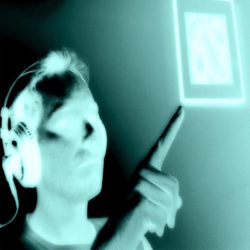For all the ballyhoo about psychospiritual growth and seizing the day and whatnot that finds its way into this blog, it’s incredible — and downright discouraging — to discover that one bad day can seemingly negate months of perceived progress. I know it’s only a feeling, and “this too shall pass” and all that shit, but it took literally one crappy experience at work for me to consider changing careers. Hec, I was ready to move out of the country after my train-wreck of a discussion group yesterday evening. I gave the kids (patients on the Adolescent Chemical Dependency Unit) an assignment, asking them to write down the one person (could be living, dead, family member, celebrity, whoever) who they considered to be “the bomb” or the coolest person ever, then give me five reasons why. I was trying to get a discussion going about values and about what we can learn about ourselves by thinking deeply about who we look up to and who we despise. By the end of the group I felt as disconnected from these kids as I do from suicide bombers.
The majority of the kids espoused a core value system on par with a bad gangsta rap song, presenting the most abject vision of vacuous materialism, criminality and self-centeredness one could possibly imagine. To say I was discouraged would be putting it mildly. I felt utterly powerless to even plant the tiniest seed of positive change in these kids. “They’re too far gone,” is all I could think. And while I know that many of them will grow out of these self-limiting beliefs in time, I can’t help but recoil at the possibility that maybe, just maybe, they are too far gone. Maybe we all are.


